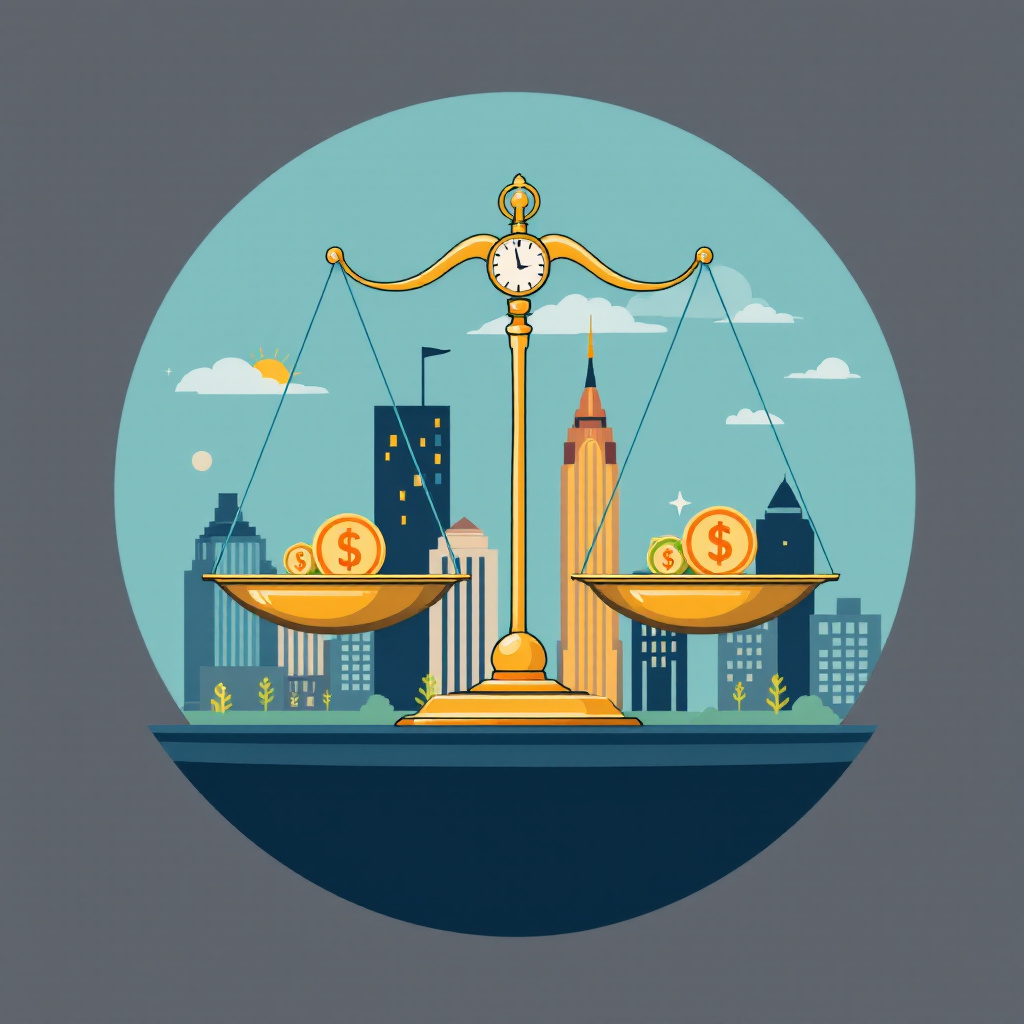Understanding Interest Rates and Repayment Terms: Balancing Cost and Affordability in Business Loan Credit Lines
In the bustling world of business finance, understanding the nitty-gritty of loans can be your golden ticket to success. Among the critical aspects of any business loan, especially credit lines, are interest rates and repayment terms. They don’t just dictate how much you’ll end up paying but can also influence the growth trajectory of your business. So, let’s dive deep into this complex web of finance, simplifying the interplay of interest rates and repayment terms without jargon overload.
The Dynamics of Interest Rates
Interest rates are the heartbeats of any loan product. They define the cost of borrowing money and are pivotal in deciding the eventual financial impact on a business. Interest rates can vary widely across different types of loans, and credit lines are no exception. But what exactly influences these rates?
- Economic Factors: Broad economic conditions, such as inflation rates, can sway interest rates. A lower inflation rate usually nudges rates down, whereas economic booms might just do the opposite.
- Creditworthiness: Your business credit score can make or break your interest rate deal. A higher score often paves the way for lower rates — a sweet deal for entrepreneurs.
- Loan Type: Fixed interest rates provide security against market volatility, while variable rates might offer initial savings but could fluctuate over time.
Interesting fact: Did you know that during economic recessions, central banks often lower interest rates to encourage lending and stimulate the economy?

Repayment Terms: The Game of Time
Not only the rate of interest matters, but also how you plan to pay it back — these are your repayment terms. These terms outline the schedule, frequency, and principal repayment, shaping the overall financial commitment.
- Repayment Schedule: Monthly installments are the norm, but seasonal businesses might benefit from more flexible terms tailored to revenue cycles.
- Term Length: Short-term loans boast higher payments but less interest over time, while long-term loans spread the cost but could tally up more interest.
- Prepayment Options: Early repayment might dodge future interest, but watch out for prepayment penalties lurking in the fine print.
Oh, and here’s a nugget of wisdom: some lenders offer interest-only periods initially, easing the cash flow burden for fledgling businesses.
The Impact of Different Interest Rates and Repayment Terms on Loan Costs
The intricate dance between interest rates and repayment terms can significantly influence loan costs. It’s like choosing between a high-speed rollercoaster or a lazy river — each choice carries its own risks and rewards. Let’s break it down:
High Interest Rate, Short Repayment Term: This combination might mean higher monthly payments but could lead to lower total interest paid over the life of the loan.
Low Interest Rate, Long Repayment Term: While this means more manageable monthly payments, the total interest paid could add up to be substantially more.
Balancing these factors often involves pegging your business’s financial strength against its future growth plans. It’s a bit of a juggling act, but getting it right could mean the difference between financial strain and stability.
Choosing the Right Fit: Credit Lines
Credit lines for businesses offer flexibility like no other. Unlike typical loans with fixed amounts, credit lines allow access to funds as required, paying interest only on the borrowed amount. The decision to opt for a credit line should consider:
- Variable vs. Fixed Rates: Most credit lines come with variable rates, meaning they can fluctuate with market conditions. Fixed rates, while rare in these products, add a layer of predictability.
- Periodic Reviews: Lenders might periodically review your credit line, adjusting terms based on your business’s performance.
The charm of credit lines lies in their adaptability, making them ideal for businesses facing fluctuating cash flow needs or preparing for future investments.
The Pros and Cons of Business Loan Credit Lines
Business credit lines, like any other financial tool, come with their set of advantages and drawbacks. Weighing these can help decide if they fit snugly with your financial strategy:
Advantages
- Flexibility: Withdraw funds as needed, paying interest only on utilized amounts.
- Credit Building: Regular responsible use can enhance your business credit score, unlocking better loan terms in the future.
- Liquidity Management: Perfect for managing short-term cash flow challenges without a full-blown loan commitment.
Disadvantages
- Variable Interest Rates: The unpredictability of rate changes can complicate budgeting efforts.
- Fees Galore: Watch out for maintenance and withdrawal fees which might hike up the cost.
- Overreliance Risk: It’s easy to fall into a cycle of debt if not managed prudently.
Mastering the Loan Game
Understanding interest rates and repayment terms isn’t just about numbers. It’s about grasping the broader financial picture and strategically incorporating loans to pave the way for business growth. When opting for credit lines, balancing flexibility with cost is the secret sauce for maximizing benefits while minimizing risks.
As with any financial decision, an informed approach, aided by professional advice, can keep you ahead of the pack. Here’s a little tip: regularly shop around for the best interest rates and repayment terms. Market dynamics change, and so do opportunities for your business to seize the most favorable conditions.
In the grand scheme of business finance, successfully managing interest rates and repayment terms with credit lines can offer the agility your business needs to thrive and expand. Now, equipped with this knowledge, you’re all set to spot those golden opportunities and sidestep potential pitfalls, ensuring your business’s financial well-being and success.
FAQs on Interest Rates and Repayment Terms
How do interest rates and repayment terms impact the affordability of a business loan?
Interest rates and repayment terms are the twin pillars of loan costs. A higher interest rate increases the monthly payments and total amount paid over the loan’s life. Shorter repayment terms mean higher monthly obligations but often less total interest. Balancing both can optimize loan affordability, aligning with your business’s financial strategy and cash flow needs.
Is it better to choose a fixed or variable interest rate for a credit line?
The choice between fixed and variable interest rates hinges on your risk tolerance and financial forecast. A fixed rate offers stability, shielding your business from market fluctuations. Conversely, variable rates might start lower but could increase, reflecting market changes. If variable rates pique your interest, ensure your business can withstand potential rate hikes.
What should businesses consider when choosing repayment terms?
When selecting repayment terms, assess your business’s cash flow and revenue predictability. Short-term loans might pressure cash flow with higher payments, but reduce total interest. Long-term loans ease monthly strain but accrue more interest over time. Evaluate prepayment penalties as well, which can impact the cost if you plan to repay early.
Are there benefits to the flexibility of credit lines despite higher rates?
Absolutely. The flexibility of credit lines allows businesses to access funds as needed, critical for managing day-to-day expenses and unexpected needs. While the rates can be higher compared to traditional loans, you’re only paying interest on the amount drawn, making them an efficient tool for cash flow management.
What happens to my business credit score if I frequently draw from a credit line?
Regular and responsible use of a credit line can improve your business credit score. Consistently meeting payment terms reflects positively. However, maxing out a credit line or missing payments can harm your score, impacting future financing options. It’s crucial to maintain a disciplined approach to borrowing and repayments.

